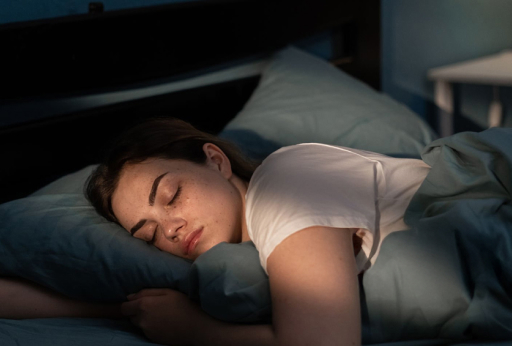Tired of feeling tired? Good quality sleep is essential for physical and emotional health, but many of us struggle to get it. Up to 1 in 4 young Australians report being unsatisfied with their sleep.
Whether due to stress, schedules, digital distractions, or irregular routines, sleep problems are increasingly common. Our sleep needs vary depending on age, lifestyle and health conditions. Most adults need seven to nine hours a night, but for many that's just not happening.
Good sleep helps:
- repair tissue
- support attention, learning and problem solving
- regulate emotions, mood and wellbeing
- keep our immune system strong
- keep our heart and blood vessels healthy
- control appetite and weight
Sleep is like stepping into a regeneration chamber. With the right amount we wake up recharged, renewed and ready for anything
The stages of sleep
Sleep is divided into cycles that last for around 90 minutes. Each cycle has two main phases. The first is rapid eye movement, or REM. During REM your eyes move rapidly, and your mind is active. It’s when most vivid dreaming occurs. This stage plays a key role in processing emotions and learning.
The second stage is non-rapid eye movement, or (yep) NREM. NREM includes the deeper sleep when body temperature drops, muscles relax, and heart rate slows. It's harder to wake up during this stage and -- or possibly because -- it's essential for physical recovery and memory consolidation.
Steps to peaceful slumber
Your best resource for sleep issues is your GP, but there are some simple ways to improve your chance of a good night's rest:

On average, adults spend 80% of the night in NREM and 20% in REM
Keep a regular sleep pattern
Go to bed and wake up at the same time every day as this helps regulate your internal clock.
Limit napping
Long or frequent naps can interfere with nighttime sleep. If you have to nap, keep it under 30 minutes and before 3pm.
No tech in the bedroom
Computers, phones and John Wick movies keep your brain wired, making it hard to wind down. Avoid screens for at least half an hour before going to sleep.
Comfort is king
A quality mattress and bedding will keep you comfortable and relaxed. A cool, dark room signals to your body that it's time for a snooze.
Food for thought
Avoid caffeine, alcohol and heavy meals close to bedtime. Stick to a diet rich in fruits, vegetables, wholegrains, lean meats and dairy to feel energetic during the day and ready for bed at night.
Exercise every day
Daily exercise helps you fall asleep quicker and improves sleep quality. Exercising too close to bedtime can have the opposite effect, though, so listen to your body.
